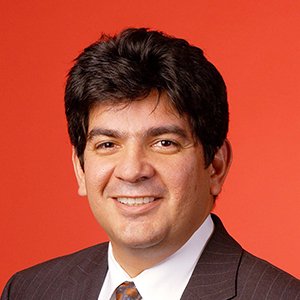Sleep Study for a Child

Why might a healthcare provider recommend a sleep study for a child?
Sleep problems tend to perpetuate themselves over time. The child who is having night terrors, or extreme nightmares, might later be the child who is sleepwalking. Sleep problems will not magically disappear, so it is important to identify them early. Parents' understanding of their kids sleep is typically influenced by their own family and cultural experiences, so what is a problem for one family, might not be for another.
There are two general types of sleep problems, behavioral and physiological. In practice, a combination of both physical and behavioral problems often exist together. For example a physical sleep disorder can lead to additional behavioral problems. If it is a behavioral problem, it will typically improve if the child is permitted to sleep wherever he or she wants to sleep. If not, it may be something physically wrong, and that's when a sleep study may be assigned.
How can families prepare for the study?
I recommend that kids and parents make it a fun night, since typically the parent will be sleeping in the room with the child. They can wear matching pajamas, order take-out food, and stay up as late as they like. This helps take the pressure off the child falling asleep since the sleep study is to find out what happens during sleep. The children typically sleep better than the parents do.
I also tell children the same rules apply in the sleep clinic as in their home; if they're able to jump on the bed at home they can do it here. I encourage them to bring anything from home—except their pets—to make them feel comfortable, such as pillows, blankets, and sheets. We also make sure the clinic is very child-appropriate with video games, magazines, and telephones for the child to call home if they want to.
The wires that we attach to the child's head are gold, so I tell children we’re going to decorate your hair with gold. Each child also receives a photo of himself or herself with wires on so that they can show their friends and family.
What advice about children's sleep can you offer for parents and kids?
Something so natural as sleep should not be a chore. It's important for parents not to get upset when they think their child is having problems, as this can perpetuate the situation.
They should take a deep breath, be patient and think how lucky they are to have that child. Parents should also know there are many resources to help them. There are several quality books as well as their pediatricians and people who are certified in both sleep medicine and pediatrics. For kids, I tell them sleep is good for you. Sleep is fun. It's when you get to dream and you can look forward to your dreams.
Rafael Pelayo, M.D., is an assistant professor at the Stanford Sleep Disorders Clinic at Stanford University School of Medicine.
This article originally appeared in the Spring 2004 issue of sleepmatters.
The right head support can greatly improve how comfortable you feel in bed.Learn more about how these medical devices can make a big difference in nighttime comfort for people with breathing issues.A frequent need to get up and go to the bathroom to urinate at night is called nocturia. It differs...Nearly one-quarter of all workers have shifts that are not during the daytime, and more than two-thirds of these workers...Explore how today's modern family sets rules for sleep, navigates the use of technology in the bedroom, how parents can...The Electronics and Sleep infographic highlights how technology affects the modern family and how parents can help design a sleep...Orexin receptor antagonists: A new class of sleeping pill Find out more about orexin, and a new type of sleep...You don't have to struggle with sleepless nights. Help is available! There are treatment options for insomnia, ranging from behavioral...Great news: more than three-fourths (76%) of those surveyed say that they had a good night’s sleep at least a...If your child’s bedtime routine during the summer has slipped with staying up late and sleeping in late, it’s never...

Source: Internet





